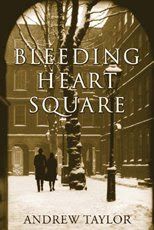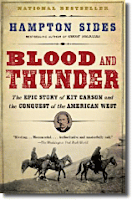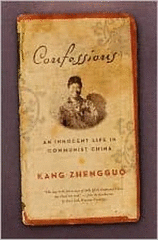 Brian Foss will soon be leaving his job as Professor of Art History and Associate Dean of the Faculty of Fine Arts at Concordia University in Montreal, and will be taking on a new job as Professor of Art History and Director of the School for Studies in Art and Culture at Carleton University, in Ottawa.
Brian Foss will soon be leaving his job as Professor of Art History and Associate Dean of the Faculty of Fine Arts at Concordia University in Montreal, and will be taking on a new job as Professor of Art History and Director of the School for Studies in Art and Culture at Carleton University, in Ottawa.His 2007 book from Yale University Press is War Paint: Art, War, State and Identity in Britain, 1939-1945.
Earlier this week I asked him what he was reading. His reply:
I’ve always got two or three books on the go, and the last couple of months have been no exception. Not long ago I finished T.J. Clark’s The Sight of Death: An Experiment in Art Writing. Like so many other art historians, I’ve been an admirer of Clark’s scholarship for many years. More recently, though, he’s allowed his visual acuity to drive and shine out of his writing as never before. This culminates in The Sight of Death, which records, in diary form, his intense visual examinations of two paintings by seventeenth-century French artist Nicholas Poussin. Looking closely at the two paintings almost every day for many months, Clark began by jotting downLearn more about Brian Foss' work at his Concordia webpage, and read more about War Paint at the Yale University Press website.general impressions, and then over the ensuing months wrote regular diary entries about his evolving reactions. As time passed he become more and more interested in – even obsessed by– both the details of the paintings and then by the larger themes that grew out of this visual scrutiny. The details were often tiny, easily overlooked bits of imagery, paint application or composition that, for less attentive viewers (which is to say, for almost everyone else), could easily seem minor to the point of inconsequentiality, if indeed they were noticed at all. Reading Clark’s cumulative, day-by-day recordings of his observations constitutes a master class in how to look at art with one’s full attention, on how to build substantial philosophical analyses on the basis of ongoing observations rather than of preconceptions, prejudices and assumptions, and on how ultimately to relate what one sees to one’s socio-political convictions. This book was a treat from beginning to end: a compelling read that gave me no end of lessons in how to look at works of art.
Another recent joy has been Felix Feneon’s Novels in Three Lines, translated from the original French by Luc Sante. It would be more accurate to translate the title of the original collection (Nouvelles en trois lignes) as The News in Three Lines,given that the more than 1000 two- and three-sentence snippets in the book were all written as filler items for issues of the Paris newspaper Le Matin in 1906. There’s a heavy emphasis on accidents, crime and death, but despite the humble – even marginal – origins and topicality of the “novels”, an astonishing number of them are perfect examples of Feneon’s gem-like selection and arrangement of mere handfuls of words. “’To die like Joan of Arc!’ cried Terbaud from the top of a pyre made of his furniture. The firemen of Saint-Ouen stifled his ambition.” Or, in one of the book’s many surprisingly detailed but laconic summings-up of crimes of passion: “Eugene Perichot, of Pailles, near Saint-Maixent, entertained at his home Mme Lemartrier. Eugene Dupuis came to fetch her. They killed him. Love.”
Finally, I’m a big fan of Mark Helprin’s magical way with prose. His long novels – especially, for me, Winter’s Tale - give him ample space to spin out spectacular sentences into long, hallucinatory scenes. But when I’m looking for something shorter, I’m happy to rereadhis collections of stories – most recently, those assembled in his 2004 book ’The Pacific’ and Other Stories. The brevity of the stories doesn’t entail a betrayal of the qualities complexity, breadth and depth that I associate with the novels. Helprin is one of those too-rare authors who can pour a world into twenty-page stories, so that reading one is like devouring a five-course meal in half an hour. And the emotional punch of the stories can be knock-out in its crystalline intensity. A great example is the title story from ’The Pacific’ and Other Stories, which in its final paragraphs delivers a blow that left me marveling at how Helprin managed to make it seem both so inevitable and yet so devastating at the same moment.
The Page 99 Test: War Paint.
--Marshal Zeringue





















































